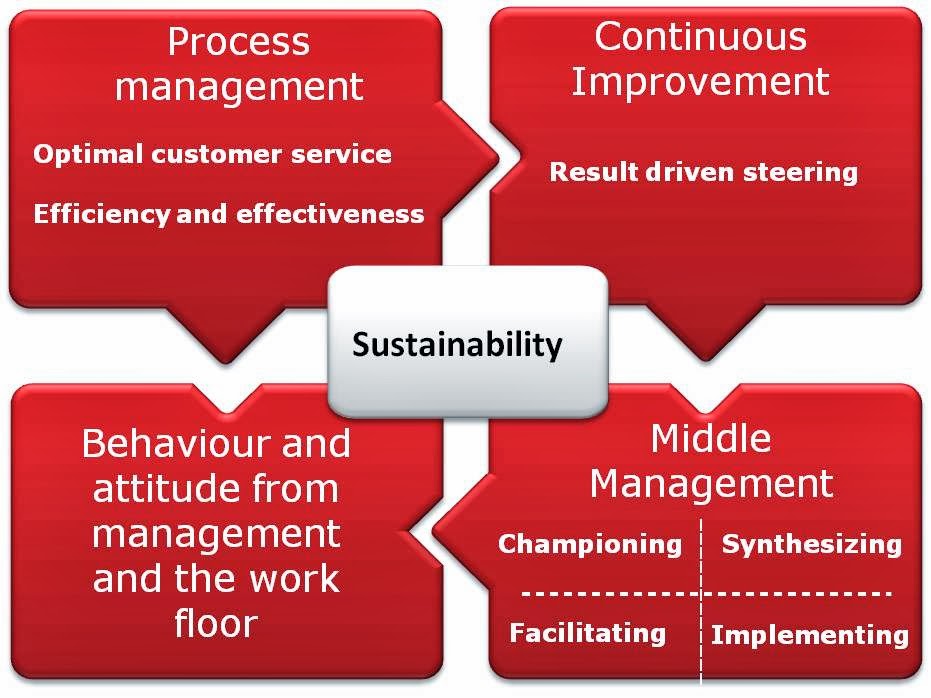Understanding The Crucial Role Of Middle Managers In Organizations

Table of Contents
The Bridge Between Leadership and Frontline Employees
Middle managers occupy a pivotal position within the organizational hierarchy, acting as the crucial bridge between senior leadership and frontline employees. They are responsible for translating high-level strategic goals into actionable plans for their teams. This requires exceptional communication skills, the ability to navigate conflicting priorities, and a keen understanding of both top-down directives and bottom-up feedback. Effective middle managers in organizations excel at:
- Facilitating top-down communication: Clearly conveying the company's vision, mission, and strategic objectives to their teams, ensuring everyone is aligned and working towards the same goals. This includes interpreting complex strategies into easily understandable terms for team members.
- Relaying bottom-up feedback: Actively soliciting and effectively communicating employee concerns, suggestions for improvement, and challenges faced by the team to senior management. This ensures that the leadership team has a realistic understanding of the ground-level realities.
- Managing conflicting priorities and expectations: Balancing competing demands from senior management and the needs of their teams, skillfully prioritizing tasks and resources to achieve optimal outcomes. This often involves skillful negotiation and conflict resolution.
Furthermore, middle managers play a significant role in fostering a positive and productive work environment. Their leadership style directly impacts employee morale, engagement, and overall job satisfaction.
Driving Team Performance and Productivity
Middle managers are the driving force behind team performance and productivity. Their ability to build strong teams, motivate individuals, and effectively manage performance is paramount to organizational success. Key skills required include:
- Delegation: Assigning tasks effectively, leveraging the strengths of each team member, and fostering a sense of ownership and responsibility.
- Mentoring: Providing guidance, support, and encouragement to team members, helping them develop their skills and advance their careers. This includes providing regular feedback and identifying training needs.
- Conflict resolution: Addressing disagreements and conflicts within the team in a fair and constructive manner, preventing disputes from escalating and disrupting productivity.
Effective middle managers set clear goals and expectations, provide regular feedback and coaching, and proactively identify and address performance issues. This proactive approach leads to improved team productivity, efficiency, and a higher quality of work. The impact of effective middle managers on organizations is clearly evident in increased output and improved team dynamics.
Strategic Implementation and Execution
Middle managers are the linchpin in translating high-level strategies into tangible, day-to-day operations. They are responsible for ensuring that strategic objectives are effectively implemented at the operational level. This involves:
- Developing and implementing action plans: Creating detailed plans outlining the steps needed to achieve strategic goals, assigning responsibilities, and setting timelines.
- Managing budgets and resources effectively: Allocating resources efficiently to maximize productivity and achieve the best possible outcomes within budgetary constraints.
- Tracking key performance indicators (KPIs) and reporting progress to senior management: Monitoring progress towards goals, identifying areas for improvement, and communicating performance updates to senior leadership.
By skillfully managing resources, monitoring progress, and adapting to changing circumstances, middle managers ensure alignment between strategic objectives and operational activities, maximizing organizational efficiency and effectiveness.
Developing Future Leaders and Talent Management
Middle managers play a crucial role in identifying, nurturing, and developing future leaders within their teams. They contribute significantly to organizational talent retention and succession planning through:
- Identifying high-potential employees: Recognizing individuals with leadership potential and providing them with opportunities to develop their skills and experience.
- Providing coaching and mentoring to support career growth: Guiding and supporting the development of employees, helping them acquire new skills and advance their careers within the organization.
- Delegating tasks and responsibilities to develop skills: Providing opportunities for employees to take on more challenging assignments, fostering growth and development.
By investing in the development of their team members, middle managers contribute significantly to organizational talent retention, succession planning, and overall long-term success. The impact of middle managers in organizations extends far beyond immediate productivity; it shapes the future leadership of the company.
The Indispensable Role of Middle Managers in Organizational Success
In conclusion, middle managers are indispensable to organizational success. Their ability to effectively communicate, lead teams, implement strategies, and develop talent is crucial for achieving organizational goals. They bridge the gap between leadership and frontline employees, driving performance, fostering a positive work environment, and ensuring the successful execution of strategic initiatives. Investing in your middle managers is investing in the future success of your organization. Understand the crucial role of middle managers in your company and empower them to achieve their full potential. Learn more about optimizing the performance of middle managers in organizations by exploring [link to relevant resource].

Featured Posts
-
 The Ahmed Hassanein Story Will He Become Egypts First Nfl Draft Pick
Apr 26, 2025
The Ahmed Hassanein Story Will He Become Egypts First Nfl Draft Pick
Apr 26, 2025 -
 70 Million Blow To Auto Carrier Impact Of Us Port Fees
Apr 26, 2025
70 Million Blow To Auto Carrier Impact Of Us Port Fees
Apr 26, 2025 -
 The Ripple Effect A Rural School 2700 Miles From Dc And Trumps Presidency
Apr 26, 2025
The Ripple Effect A Rural School 2700 Miles From Dc And Trumps Presidency
Apr 26, 2025 -
 Navigating The China Market The Challenges Faced By Bmw Porsche And Others
Apr 26, 2025
Navigating The China Market The Challenges Faced By Bmw Porsche And Others
Apr 26, 2025 -
 Exclusive Pentagon Chaos Shakes Pete Hegseth Polygraph Threats Leaks And Infighting
Apr 26, 2025
Exclusive Pentagon Chaos Shakes Pete Hegseth Polygraph Threats Leaks And Infighting
Apr 26, 2025
